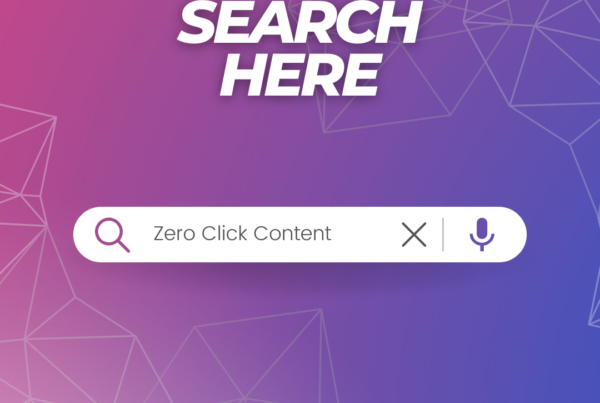
While marketers often cringe when a new Google update is released, algorithmic improvements filter substandard web pages, improving user experiences and trust because Google will only rank websites they consider to demonstrate expertise, authoritativeness, and trustworthiness (EAT principle).
For example, Google’s 2018 “medic” update ensured only credible medical sources would take the top spots in search. Thus, untrustworthy health and medical websites were penalized, with many de-indexed altogether.
With every Google update, business owners must audit and adjust keyword strategies to avoid penalization. Keywords are search engine queries guiding both users and search crawlers. Hence, keyword research for small business marketing is imperative for online visibility.
Explore keyword best practices to remain in the good graces of users and search engines.
Out With the Old
Dated or unethical keyword research is a major conflict with Google SEO protocols. Google recognizes and penalizes those who apply Black hat and other penalty-worthy keyword strategies:
- Keyword stuffing
- Irrelevant keywords
- Keyword cloaking
Keyword stuffing also happens by accident while writing.
For example, Google defines repeated keywords as stuffing since they stand out unnaturally in the text. You can avoid this problem by reading content aloud and aiming for a 1% to 2% keyword density; this frequency equates to one keyword for every 100 words of content.
Avoid Irrelevant Keywords
Misleading keywords sound Google’s alarms, with cloaking being an extreme example.
Cloaking presents one set of keywords to readers while embedding a completely different set for site crawlers. While keyword cloaking may have worked in the 90s, you could suffer a permanent Google ban for the practice today.
Users also resent the bait and switch of irrelevant keywords, and Google is doing something about it.
Type a search query into Google and look at the first featured snippet result. Click on the feedback icon in the lower right-hand corner to view a survey box. You’ll notice a series of options, including “this is misleading or inaccurate.”
Google is taking extra precautions to rid problematic keyword practices from its results. Unfortunately, unsuspecting business owners find themselves in the algorithmic crosshairs, unaware of the dangers of keyword mistakes. Such mistakes can be avoided with a simple refresher in keyword research.
Keywords Are Windows Into User Behavior
Keyword research has evolved from a formulaic approach to a psychological process. Since Google’s algorithms discern search intent, today’s keyword research appeals to users’ mindsets and goals, also known as the buyer’s journey. By tapping into user behavior, you can execute creative content strategies appealing to various motivators.
Keywords reveal valuable data about the following:
- Topic curiosity
- Decision-making
- Brand comparisons
- Common problems
- Search goals
Think of various ways to leverage these behaviors in your keyword strategy.
Suppose you own a tourism business in Philadelphia. What topics would pique a potential tourist’s curiosity?
The following questions and phrases are a great start:
- Philadelphia history
- Things to do in Philadelphia
- Best Philadelphia attractions
- Philadelphia museums
- Visit Philadelphia
- Best food in Philadelphia
What do these queries tell you about the person?
For example, the word “best” is revealing. This word choice is deliberate; someone who’s hunting for the best choices is expecting the best. Otherwise, they would have sufficed for “Philadelphia attractions.”
However, not every web page claiming to have the best content delivers the best.
Users looking for top Philly recommendations want authoritative sources. Thus, keywords are opportunities for your local business to shine in Google, even landing a featured snippet result!
The Value of Basic Keyword Research for Small Business Marketing
Do you notice something interesting as you type queries into the search bar?
The algorithms pick up on your intent, auto-filling a drop-down menu with related suggestions. Narrow down your questions to reveal additional data-driven queries. Successful keyword research starts with asking questions, uncovering target audiences along the way.
Simple Google searching is keyword research at its most basic level. Suggested keywords inspire search-friendly content topics and PPC ad copy, but they only scratch the surface. Keyword research tools go deeper, revealing search volume, user demographics, and top-ranking keywords for URLs.
Boost Organic Brand Awareness
Keyword research uncovers a goldmine of brand awareness opportunities.
Going back to the previous example, you can build an organic brand awareness campaign around “best of” keywords. Top 10 listicles, general Philadelphia history, and blogs about Philly life also pique readers’ interest, sparking curiosity in your brand.
With the right combination of keyword and content strategy, users will view your website as the preeminent authority on Philly tourism, establishing trust.
Trust results in the following actions:
- Frequent website visits
- Higher click-through rates
- Blog comments
- Sharing to social media
- Purchases
Trustworthy content is critical, but consistency is just as vital. Google’s algorithms also reward websites that publish quality content consistently.
Research keyword groups to discover more content ideas, especially evergreen topics. High-value evergreen keywords are relevant year-round, generating dependable organic search traffic.
Grow Awareness with PPC
Stellar keyword research uplifts your organic presence and PPC efforts.
PPC stands for pay-per-click, with the most popular platform being Google’s own Ads service. Pay-per-click ads appear above top-ranking organic results, expanding brand awareness. You can also publish ads on YouTube, network websites, Google Shopping, and various apps.
Similar to organic content, profitable PPC campaigns begin with targeted keyword research, optimizing ads for maximum impact. At VujaDay Digital, we leverage keyword metrics, creative copywriting, and data-driven scheduling to boost your name and conversion rate.
Discover the True Power of Keywords
Keywords are gateways into users’ minds. Stellar research uncovers consumers’ curiosities, urgent needs, evergreen interests, and goals.
Targeted keyword research for small business marketing also enhances organic and PPC campaigns, maximizing your ROI on SEO.
Tackling your own SEO leaves too many opportunities on the table. Leave the leg work and problem-solving to us. Contact VujaDay Digital to start building a meaningful search presence.



